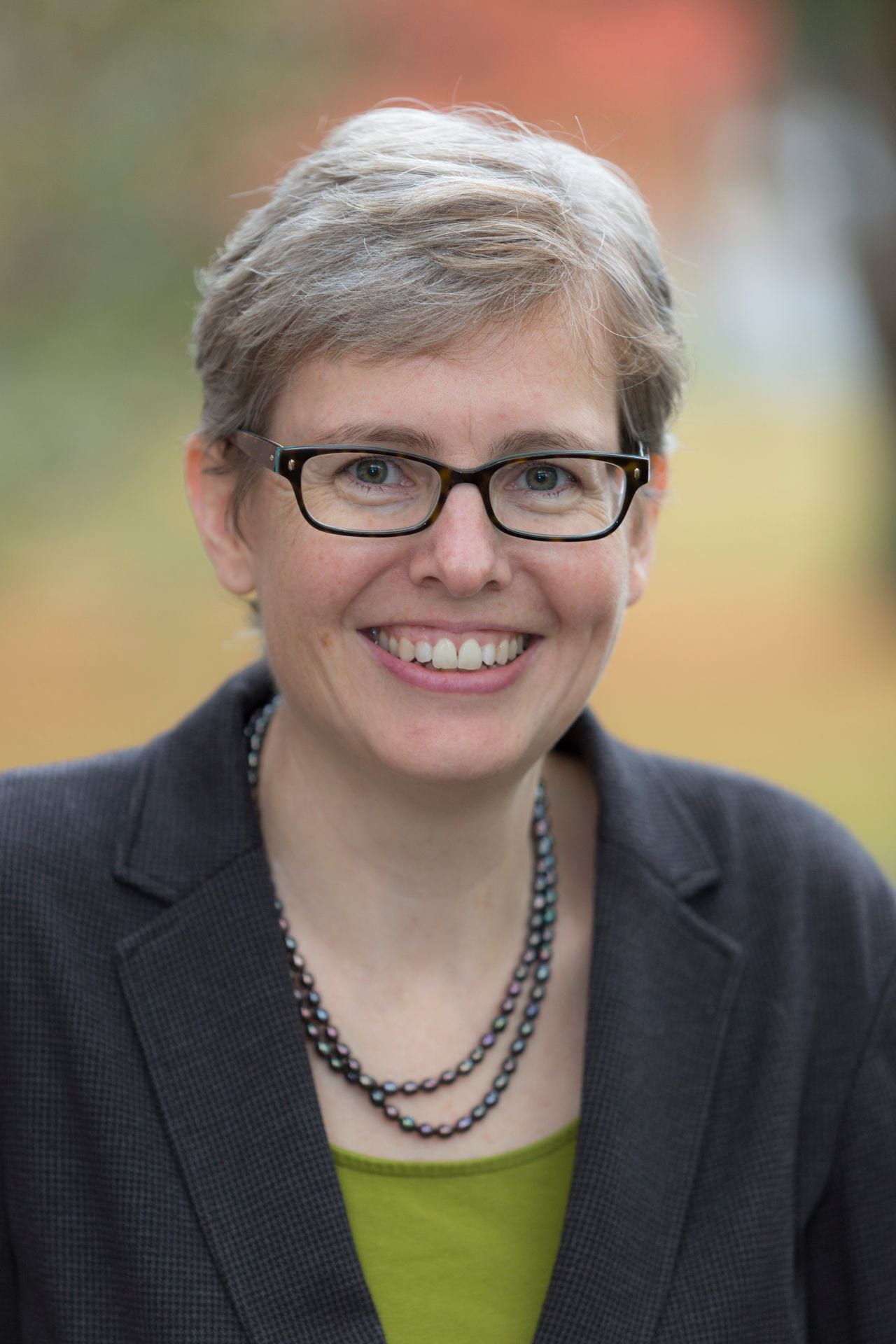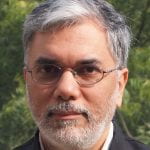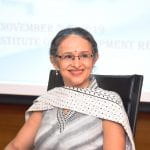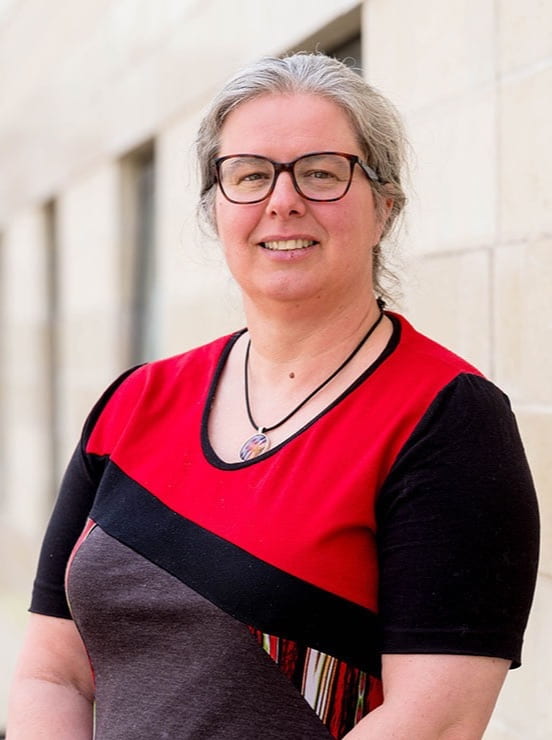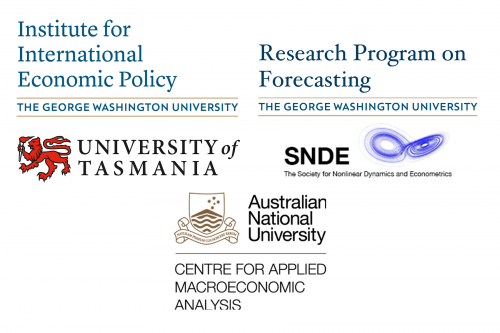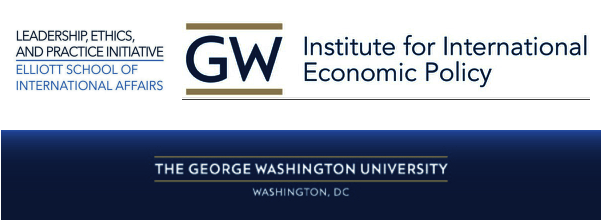In 2010 the Human Development Report introduced the Multidimensional Poverty Index (MPI), a measure based on the counting approach of Alkire and Foster (2011)[i]. The MPI is currently being calculated for over 100 developing countries. However, developed countries were not covered, leaving a false impression that there are no multidimensional deprivations in these countries.
With the universality aspect of the Sustainable Development Goals, the need for a measure of overlapping deprivations for developed countries became important. This paper proposes a new experimental composite index, the Multidimensional Deprivation Index (MDI), aiming at filling this gap by exploring and assessing the simultaneous human deprivations in developed countries. It is based on the same counting approach as the MPI. Similarly, all the indicators needed to construct the MDI must come from the same survey. The experimental MDI proposed here is based on 14 indicators and identifies households and individuals that are acutely deprived in 5 dimensions: education, health, material standard of living, environment and housing, and work.
What is the difference between multidimensional poverty and multidimensional deprivations? Multidimensional poverty refers to individuals lacking multiple basic needs such as access to improved drinking water or improved sanitation facilities. This concept is more appropriate for developing countries. On the other hand, we prefer to use the term multidimensional deprivations to refer to individuals suffering deprivations in aspects that are not basic but that can be no less debilitating to the choices of the individuals and families experiencing the deprivations. Even though a household can have access to improved drinking water and improved sanitation facilities, it can still suffer a deprivation if it cannot keep the home adequately warm or if it cannot pay bills on time. This concept is more appropriate for developed countries. Applying the same methodology to developed and developing countries would give the false impression that there are no multidimensional deprivations in developed countries.
[1] Sabina Alkire and James Foster (2011). Counting and Multidimensional Poverty Measurement.” Journal of Public Economics, 95, 476-487.
About the Presenter:
 Cecilia Calderón‘s topics of research include multidimensional poverty, with particular interest in analyzing multidimensional poverty in children, the Human Development Index, inequalities in education and income, and gender inequalities.
Cecilia Calderón‘s topics of research include multidimensional poverty, with particular interest in analyzing multidimensional poverty in children, the Human Development Index, inequalities in education and income, and gender inequalities.
Before joining the Human Development Report Office at the United Nations Development Programme, Cecilia has worked at the Population Council, the Inter-American Development Bank and the Center for Distributive, Labor and Social Studies at the Universidad Nacional de La Plata (CEDLAS), Argentina. Cecilia holds a Ph.D. and a master’s degree in Demography from the University of Pennsylvania and a master’s in Economics from the Universidad Nacional de La Plata, Argentina. Her Ph.D. dissertation analyses the relationship between the nutritional status of the mothers and its impact of the growth and development of their children.
About the Moderator:
 James E. Foster is the Oliver T. Carr, Jr. Professor of International Affairs, Professor of Economics, and Co-Director of the Institute for International Economic Policy at the George Washington University. He is also a Research Associate at the Oxford Poverty and Human Development Initiative at Oxford University. Professor Foster’s research focuses on welfare economics — using economic tools to evaluate and enhance the wellbeing of people. His work underlies many well-known social indices including the global Multidimensional Poverty Index (MPI) published annually by the UNDP in the Human Development Report, dozens of national MPIs used to guide domestic policy against poverty, the Women’s Empowerment in Agriculture Index (WEAI) at USAID, the Gross National Happiness Index of Bhutan, the Better Jobs Index of the InterAmerican Development Bank, and the Statistical Performance Index of the World Bank. Prof. Foster received his PhD in Economics from Cornell University and has a Doctorate Honoris Causa from Universidad Autonoma del Estado Hidalgo (Mexico).
James E. Foster is the Oliver T. Carr, Jr. Professor of International Affairs, Professor of Economics, and Co-Director of the Institute for International Economic Policy at the George Washington University. He is also a Research Associate at the Oxford Poverty and Human Development Initiative at Oxford University. Professor Foster’s research focuses on welfare economics — using economic tools to evaluate and enhance the wellbeing of people. His work underlies many well-known social indices including the global Multidimensional Poverty Index (MPI) published annually by the UNDP in the Human Development Report, dozens of national MPIs used to guide domestic policy against poverty, the Women’s Empowerment in Agriculture Index (WEAI) at USAID, the Gross National Happiness Index of Bhutan, the Better Jobs Index of the InterAmerican Development Bank, and the Statistical Performance Index of the World Bank. Prof. Foster received his PhD in Economics from Cornell University and has a Doctorate Honoris Causa from Universidad Autonoma del Estado Hidalgo (Mexico).
Pedro Conceição has been Director of the Human Development Report Office and lead author of the Human Development Report since 1 January 2019. Prior to this, Pedro served as Director, Strategic Policy, at the Bureau for Policy and Programme Support (from October 2014), and Chief Economist and Head of the Strategic Advisory Unit at the Regional Bureau for Africa (from 1 December 2009). Before that, he was Director of the Office of Development Studies (ODS) from March 2007 to November 2009, and Deputy Director of ODS, from October 2001 to February 2007. His work on financing for development and on global public goods was published by Oxford University Press in books he co-edited (The New Public Finance: Responding to Global Challenges, 2006; Providing Global Public Goods: Managing Globalization, 2003). He has published on inequality, the economics of innovation and technological change, and development in, amongst other journals, the African Development Review, Review of Development Economics, Eastern Economic Journal, Ecological Economics, Environmental Economics and Policy Studies, Food Policy, and Technological Forecasting and Social Change. He co-edited several books including: Innovation, Competence Building, and Social Cohesion in Europe- Towards a Learning Society (Edward Elgar, 2002) and Knowledge for Inclusive Development (Quorum Books, 2001). Prior to coming to UNDP, he was an Assistant Professor at the Instituto Superior Técnico, Technical University of Lisbon, Portugal, teaching and researching on science, technology and innovation policy. He has degrees in Physics from Instituto Superior Técnico and in Economics from the Technical University of Lisbon and a Ph. D. in Public Policy from the Lyndon B. Johnson School of Public Affairs at the University of Texas at Austin, where he studied with a Fulbright scholarship.
About the Discussants:
 Fanni Kovesdi is a Research Analystat the Oxford Poverty and Human Development Initiative (OPHI), where she is supporting research focused on the global MPI, moderate poverty and wellbeing, and technical work with national governments. Prior to joining OPHI, she has worked on research projects at the University of Oxford, the Centre for Social Sciences at the Hungarian Academy of Sciences, and the regional office of Terre des Hommes in Central and South East Europe. Previously, she worked on the “Changes over Time” project which harmonized global MPI data across 80 countries to analyze trends in poverty. She has also supported previous releases of the global MPI through data work and report writing along with leading the ethnicity disaggregation of the measure in 2019. Kovesdi holds a bachelor’s degree in Politics and Sociology from the University of Bristol, and a Master’s degree in Sociology from the University of Oxford. Her primary research interests are in multidimensional poverty measurement and analysis, wellbeing, and ethnicity and migration, particularly in the European context.
Fanni Kovesdi is a Research Analystat the Oxford Poverty and Human Development Initiative (OPHI), where she is supporting research focused on the global MPI, moderate poverty and wellbeing, and technical work with national governments. Prior to joining OPHI, she has worked on research projects at the University of Oxford, the Centre for Social Sciences at the Hungarian Academy of Sciences, and the regional office of Terre des Hommes in Central and South East Europe. Previously, she worked on the “Changes over Time” project which harmonized global MPI data across 80 countries to analyze trends in poverty. She has also supported previous releases of the global MPI through data work and report writing along with leading the ethnicity disaggregation of the measure in 2019. Kovesdi holds a bachelor’s degree in Politics and Sociology from the University of Bristol, and a Master’s degree in Sociology from the University of Oxford. Her primary research interests are in multidimensional poverty measurement and analysis, wellbeing, and ethnicity and migration, particularly in the European context.
 Mauricio Apablaza is the Research Director at the School of Government at Universidad del Desarrollo. He is also a Research Associate at the Oxford Poverty and Human Development Initiative (OPHI). Previously, he worked as Research Officer and Outreach Coordinator at OPHI, at the University of Oxford. He holds a PhD in Economics from the University of Nottingham, United Kingdom and a Master in Public Policies from the University del Desarrollo (Chile). He has been regional director for civil society organizations and consultant to international businesses and agencies (MEDSTAT/OECD, UNICEF, UNDP, SADC, WORLD BANK). He has led training programs for OPHI in South Africa, Malaysia, Indonesia, Jordan, Egypt, Hungary, Brasil, Chile, the Netherlands, Barbados, US, Vietnam, Nicaragua and Thailand, among others. His areas of research include institutions, poverty dynamics, international migration and commerce.
Mauricio Apablaza is the Research Director at the School of Government at Universidad del Desarrollo. He is also a Research Associate at the Oxford Poverty and Human Development Initiative (OPHI). Previously, he worked as Research Officer and Outreach Coordinator at OPHI, at the University of Oxford. He holds a PhD in Economics from the University of Nottingham, United Kingdom and a Master in Public Policies from the University del Desarrollo (Chile). He has been regional director for civil society organizations and consultant to international businesses and agencies (MEDSTAT/OECD, UNICEF, UNDP, SADC, WORLD BANK). He has led training programs for OPHI in South Africa, Malaysia, Indonesia, Jordan, Egypt, Hungary, Brasil, Chile, the Netherlands, Barbados, US, Vietnam, Nicaragua and Thailand, among others. His areas of research include institutions, poverty dynamics, international migration and commerce.
 Nobel Laureate Professor Muhammad Yunus is the founder of Grameen Bank, pioneering the concepts of microcredit and social business, founding more than 50 Social Business companies in Bangladesh. For his constant innovation and enterprise, the Fortune Magazine named Professor Yunus in March 2012 as “one of the greatest entrepreneurs of our time.” At the Opening Ceremony of the Olympic Games Tokyo 2020 Professor Yunus was conferred with the Olympic Laurel award for his extensive work in sports for development, bringing the concept of social business to the sports world.
Nobel Laureate Professor Muhammad Yunus is the founder of Grameen Bank, pioneering the concepts of microcredit and social business, founding more than 50 Social Business companies in Bangladesh. For his constant innovation and enterprise, the Fortune Magazine named Professor Yunus in March 2012 as “one of the greatest entrepreneurs of our time.” At the Opening Ceremony of the Olympic Games Tokyo 2020 Professor Yunus was conferred with the Olympic Laurel award for his extensive work in sports for development, bringing the concept of social business to the sports world. Suman Seth is an Associate Professor of Economics at the Leeds University Business School and an honorary Research Associate at the Oxford Poverty and Human Development Initiative (OPHI). He had previously been a Research Officer and a Senior Research Officer at OPHI between 2010 and 2015. He is primarily interested in Development Economics with a particular emphasis on measurement methodologies and policy-oriented applications. Previously, he has served as consultants to the Regional Bureau of Latin America and the Caribbean, United Nations Development Programme (UNDP), to the Development Research Groups at the World Bank, and to the Asian Development Bank. He has co-authored a book on income poverty measurement with the World Bank and a book on multidimensional poverty with OPHI colleagues.
Suman Seth is an Associate Professor of Economics at the Leeds University Business School and an honorary Research Associate at the Oxford Poverty and Human Development Initiative (OPHI). He had previously been a Research Officer and a Senior Research Officer at OPHI between 2010 and 2015. He is primarily interested in Development Economics with a particular emphasis on measurement methodologies and policy-oriented applications. Previously, he has served as consultants to the Regional Bureau of Latin America and the Caribbean, United Nations Development Programme (UNDP), to the Development Research Groups at the World Bank, and to the Asian Development Bank. He has co-authored a book on income poverty measurement with the World Bank and a book on multidimensional poverty with OPHI colleagues.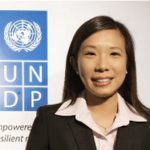 Yu-Chieh Hsu (Human Development Report Office)
Yu-Chieh Hsu (Human Development Report Office) Tasneem Mirza (United Nations Development Programme)
Tasneem Mirza (United Nations Development Programme)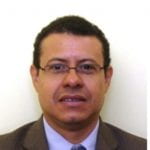 Mauricio Gallardo is Associate Professor at Universidad Católica del Norte in Chile where he teaches Econometrics and Statistical Methods. He holds a master’s degree in Philosophy from Saint Petersburg State University in Russia, a master’s degree in Economics from Pontificia Universidad Católica in Chile, and a Ph.D. in Economics from Universidad Nacional de La Plata in Argentina. Before entering the academy, he worked for the Statistical Division at the Central Bank of Chile. He has also worked providing technical assistance to international organizations on statistical issues. His research interests are related to poverty, vulnerability, and inequality of opportunities.
Mauricio Gallardo is Associate Professor at Universidad Católica del Norte in Chile where he teaches Econometrics and Statistical Methods. He holds a master’s degree in Philosophy from Saint Petersburg State University in Russia, a master’s degree in Economics from Pontificia Universidad Católica in Chile, and a Ph.D. in Economics from Universidad Nacional de La Plata in Argentina. Before entering the academy, he worked for the Statistical Division at the Central Bank of Chile. He has also worked providing technical assistance to international organizations on statistical issues. His research interests are related to poverty, vulnerability, and inequality of opportunities.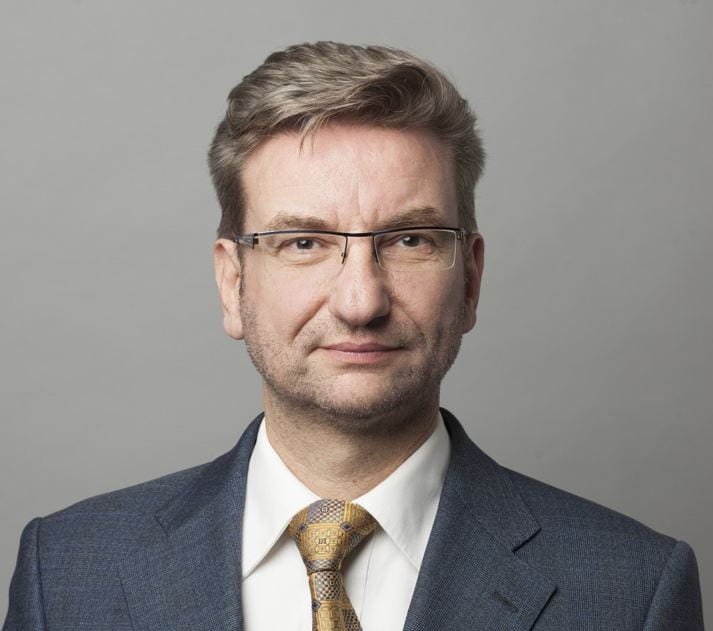 Stefan Sperlich made his diploma in mathematics at the University of Göttingen and holds a PhD in economics from the Humboldt University of Berlin. From 1998 to 2006 he was Professor for statistics at the University Carlos III de Madrid, from 2006 to 2010 chair of econometrics at the University of Göttingen, and is since 2010 professor for statistics and econometrics at the University of Geneva. His research interests are ranging from nonparametric statistics over small area statistics to empirical economics, in particular impact evaluation methods. He has been working since about 15 years as consultant for regional, national and international institutions, participated in development programs like EUROSOCIAL, is cofounder of the research center ‘Poverty, Equity and Growth in Developing Countries’ at the University of Göttingen, and is research fellow at the Center for Evaluation and Development (Mannheim, Germany). He published in various top ranked scientific journals of different fields and was awarded with the Koopmans econometric theory prize (among others).
Stefan Sperlich made his diploma in mathematics at the University of Göttingen and holds a PhD in economics from the Humboldt University of Berlin. From 1998 to 2006 he was Professor for statistics at the University Carlos III de Madrid, from 2006 to 2010 chair of econometrics at the University of Göttingen, and is since 2010 professor for statistics and econometrics at the University of Geneva. His research interests are ranging from nonparametric statistics over small area statistics to empirical economics, in particular impact evaluation methods. He has been working since about 15 years as consultant for regional, national and international institutions, participated in development programs like EUROSOCIAL, is cofounder of the research center ‘Poverty, Equity and Growth in Developing Countries’ at the University of Göttingen, and is research fellow at the Center for Evaluation and Development (Mannheim, Germany). He published in various top ranked scientific journals of different fields and was awarded with the Koopmans econometric theory prize (among others).

 Nils Grede assumed the position of World Food Programme Representative (WFP) for Turkey in September 2017. Before arriving to Turkey, he was the Representative in El Salvador. Prior to his current position, Mr. Grede gained experience as WFP Deputy Director in Jakarta, Indonesia (2013-2014). He temporarily served as WFP Interim Deputy Director in Brazzaville, Congo (2013) and WFP Interim Country Director in Mbabane, Swaziland (2012-2013). Before that he was Deputy Chief of Nutrition and HIV/AIDS Policy at WFP’s Headquarters. Prior to joining WFP, he was Director of International Recruitment Marketing at Boston Consulting Group (2008 and 2009) and Principal Director at Boston Consulting Group in Los Angeles, California (2001-2005). Mr. Grede is a German national and is fluent in eight languages: German, English, Spanish, French, Italian, Portuguese, Arabic, Hebrew. He is quickly working on improving his Turkish. He holds a Bachelor’s and Master’s degree in Islamic and Middle Eastern Sciences received from the Hebrew University of Jerusalem, Israel. Grede has also received an MBA from Stanford University.
Nils Grede assumed the position of World Food Programme Representative (WFP) for Turkey in September 2017. Before arriving to Turkey, he was the Representative in El Salvador. Prior to his current position, Mr. Grede gained experience as WFP Deputy Director in Jakarta, Indonesia (2013-2014). He temporarily served as WFP Interim Deputy Director in Brazzaville, Congo (2013) and WFP Interim Country Director in Mbabane, Swaziland (2012-2013). Before that he was Deputy Chief of Nutrition and HIV/AIDS Policy at WFP’s Headquarters. Prior to joining WFP, he was Director of International Recruitment Marketing at Boston Consulting Group (2008 and 2009) and Principal Director at Boston Consulting Group in Los Angeles, California (2001-2005). Mr. Grede is a German national and is fluent in eight languages: German, English, Spanish, French, Italian, Portuguese, Arabic, Hebrew. He is quickly working on improving his Turkish. He holds a Bachelor’s and Master’s degree in Islamic and Middle Eastern Sciences received from the Hebrew University of Jerusalem, Israel. Grede has also received an MBA from Stanford University. Felix Schmieding is a Senior Statistician with the World Bank – UNHCR Joint Data Center on Forced Displacement. Earlier work includes assignments with UNHCR, UNDP, and the UN Statistics Division. Felix has implemented or provided technical assistance to numerous statistical activities in Asia, Africa, and the Caribbean – including living conditions surveys, labour force surveys, population censuses, and administrative registers. He has worked closely with the National Statistical Offices and National Statistical Systems of various countries, building technical and institutional capacity. He has also held key roles in global processes aiming at the development of international statistical standards under the auspices of the UN Statistical Commission. Felix has advised on the analysis of multi-dimensional poverty on various occasions, including for the 2012 population census in Rwanda and a 2018 survey of refugees in Kenya. He holds an M.Sc degree from the University of Oxford.
Felix Schmieding is a Senior Statistician with the World Bank – UNHCR Joint Data Center on Forced Displacement. Earlier work includes assignments with UNHCR, UNDP, and the UN Statistics Division. Felix has implemented or provided technical assistance to numerous statistical activities in Asia, Africa, and the Caribbean – including living conditions surveys, labour force surveys, population censuses, and administrative registers. He has worked closely with the National Statistical Offices and National Statistical Systems of various countries, building technical and institutional capacity. He has also held key roles in global processes aiming at the development of international statistical standards under the auspices of the UN Statistical Commission. Felix has advised on the analysis of multi-dimensional poverty on various occasions, including for the 2012 population census in Rwanda and a 2018 survey of refugees in Kenya. He holds an M.Sc degree from the University of Oxford. Presenter: Ricardo Santos is a Research Fellow of the United Nations University World Institute of Development Economics Research – UNU-WIDER, stationed in Maputo, Mozambique, as Technical Advisor to the Centre of Economics and Management Studies at the Faculty of Economics of Eduardo Mondlane University. His doctoral research examined the post-conflict labour market and education sector in Timor-Leste, looking at the medium-run impact of exposure to violence and conflict produce on the households’ choices regarding education. His recent research has focused on the Mozambican labour market, school-to-work transition and on poverty and inequality. His previous work in the development field includes voluntary work for one year in Timor-Leste as a member of a Portuguese NGO and, Program Manager for Timor-Leste and Angola and Deputy Executive Officer of the same NGO.
Presenter: Ricardo Santos is a Research Fellow of the United Nations University World Institute of Development Economics Research – UNU-WIDER, stationed in Maputo, Mozambique, as Technical Advisor to the Centre of Economics and Management Studies at the Faculty of Economics of Eduardo Mondlane University. His doctoral research examined the post-conflict labour market and education sector in Timor-Leste, looking at the medium-run impact of exposure to violence and conflict produce on the households’ choices regarding education. His recent research has focused on the Mozambican labour market, school-to-work transition and on poverty and inequality. His previous work in the development field includes voluntary work for one year in Timor-Leste as a member of a Portuguese NGO and, Program Manager for Timor-Leste and Angola and Deputy Executive Officer of the same NGO.










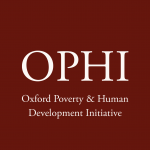







 Kathryn Olivarius is an Assistant Professor of History at Stanford University, where she has taught since 2017. Her research and teaching focus on slavery’s rise and fall in the American South and the wider Atlantic World, disease in the nineteenth century, the history of race and ethnicity, and the social upheaval of the Age of Revolutions. Last year, she was awarded Stanford’s Phi Beta Kappa teaching prize for undergraduate teaching. Before moving to California, she was a Past and Present postdoctoral fellow at the Institute for Historical Research in London. Her book entitled Necropolis: Disease, Power, and Capitalism in the Cotton Kingdom will be published by Harvard University Press in Fall 2021. Her article “Immunity, Power, and Belonging in Antebellum New Orleans,” was published by the American Historical Review last year.
Kathryn Olivarius is an Assistant Professor of History at Stanford University, where she has taught since 2017. Her research and teaching focus on slavery’s rise and fall in the American South and the wider Atlantic World, disease in the nineteenth century, the history of race and ethnicity, and the social upheaval of the Age of Revolutions. Last year, she was awarded Stanford’s Phi Beta Kappa teaching prize for undergraduate teaching. Before moving to California, she was a Past and Present postdoctoral fellow at the Institute for Historical Research in London. Her book entitled Necropolis: Disease, Power, and Capitalism in the Cotton Kingdom will be published by Harvard University Press in Fall 2021. Her article “Immunity, Power, and Belonging in Antebellum New Orleans,” was published by the American Historical Review last year. Martin Saavedra is an Associate Professor of Economics at Oberlin College and earned his PhD in Economics from the University of Pittsburgh in 2014. He primarily works in the fields of economic history, health economics, and labor economics, and his research focuses on the economics of infectious disease, infant health, and the WW2 internment of Japanese Americans. His work has been published in the Journal of Economic History, Explorations in Economic History, the Journal of Economic Literature, among others.
Martin Saavedra is an Associate Professor of Economics at Oberlin College and earned his PhD in Economics from the University of Pittsburgh in 2014. He primarily works in the fields of economic history, health economics, and labor economics, and his research focuses on the economics of infectious disease, infant health, and the WW2 internment of Japanese Americans. His work has been published in the Journal of Economic History, Explorations in Economic History, the Journal of Economic Literature, among others. Dayna Bowen Matthew, JD, PhD, is the Dean and Harold H. Greene Professor of Law at the George Washington University Law School. Dean Matthew is a leader in public health and civil rights law who focuses on racial disparities in health care. She joined the UVA Law faculty in 2017 and is the author of the book Just Medicine: A Cure for Racial Inequality in American Health Care. At UVA, she served as Co-Founder and Inaugural Director of The Equity Center, a transdisciplinary research center that seeks to build better relationships between UVA and the Charlottesville community through community-engaged scholarship that tangibly redresses racial and socioeconomic inequality.
Dayna Bowen Matthew, JD, PhD, is the Dean and Harold H. Greene Professor of Law at the George Washington University Law School. Dean Matthew is a leader in public health and civil rights law who focuses on racial disparities in health care. She joined the UVA Law faculty in 2017 and is the author of the book Just Medicine: A Cure for Racial Inequality in American Health Care. At UVA, she served as Co-Founder and Inaugural Director of The Equity Center, a transdisciplinary research center that seeks to build better relationships between UVA and the Charlottesville community through community-engaged scholarship that tangibly redresses racial and socioeconomic inequality.
 Bina Agarwal is Professor of Development Economics and Environment at the Global Development Institute, University of Manchester, UK, and former Professor and Director, Institute of Economic Growth, Delhi. She has been President, International Society for Ecological Economics; Vice-President, International Economic Association; President, International Society for Feminist Economics; and held distinguished positions at the Universities of Cambridge, Harvard, Princeton, Michigan, Minnesota, and the New York University School of Law. Dr. Agarwal’s publications include the multiple award-winning book, A Field of One’s Own: Gender and Land Rights in South Asia (Cambridge University Press, 1994), Gender and Green Governance (OUP, 2010) and Gender Challenges (OUP, 2016), a three volume compendium of her selected papers on Agriculture, Property, and the Environment. Her pioneering work on gender inequality in property and land and on environmental governance, has had global impact. Her many awards include a Padma Shri, 2008; book prizes; the Leontief Prize 2010; Louis Malassis Scientific Prize 2017; and the International Balzan Prize, 2017.
Bina Agarwal is Professor of Development Economics and Environment at the Global Development Institute, University of Manchester, UK, and former Professor and Director, Institute of Economic Growth, Delhi. She has been President, International Society for Ecological Economics; Vice-President, International Economic Association; President, International Society for Feminist Economics; and held distinguished positions at the Universities of Cambridge, Harvard, Princeton, Michigan, Minnesota, and the New York University School of Law. Dr. Agarwal’s publications include the multiple award-winning book, A Field of One’s Own: Gender and Land Rights in South Asia (Cambridge University Press, 1994), Gender and Green Governance (OUP, 2010) and Gender Challenges (OUP, 2016), a three volume compendium of her selected papers on Agriculture, Property, and the Environment. Her pioneering work on gender inequality in property and land and on environmental governance, has had global impact. Her many awards include a Padma Shri, 2008; book prizes; the Leontief Prize 2010; Louis Malassis Scientific Prize 2017; and the International Balzan Prize, 2017. Ajay Chhibber is a Distinguished Visiting Scholar, Institute of International Economic Policy, George Washington University and Non-Resident Senior Fellow, the Atlantic Council, Washington DC. He was earlier Director General, Independent Evaluation Office, Government of India and Distinguished Visiting Professor at the National Institute of Public Finance and Policy (NIPFP), India. He held senior positions at the UN as Assistant Secretary General and Assistant Administrator, UNDP and managed their program for Asia and the Pacific. He also served in senior positions at the World Bank. He has a PhD from Stanford University, a Masters from the Delhi School of Economics. He taught at Georgetown University and at the University of Delhi.
Ajay Chhibber is a Distinguished Visiting Scholar, Institute of International Economic Policy, George Washington University and Non-Resident Senior Fellow, the Atlantic Council, Washington DC. He was earlier Director General, Independent Evaluation Office, Government of India and Distinguished Visiting Professor at the National Institute of Public Finance and Policy (NIPFP), India. He held senior positions at the UN as Assistant Secretary General and Assistant Administrator, UNDP and managed their program for Asia and the Pacific. He also served in senior positions at the World Bank. He has a PhD from Stanford University, a Masters from the Delhi School of Economics. He taught at Georgetown University and at the University of Delhi. Nora Lustig is Samuel Z. Stone Professor of Latin American Economics and the founding Director of the Commitment to Equity Institute (CEQ) at Tulane University. She is also a Nonresident Senior Fellow at the Brookings Institution, the Center for Global Development and the Inter-American Dialogue. Professor Lustig’s research focuses on economic development, inequality and social policies with emphasis on Latin America. Her recent publication Commitment to Equity Handbook: Estimating the Impact of Fiscal Policy on Inequality and Poverty is a step-by-step guide to assessing the impact of taxation and social spending on inequality and poverty in developing countries. Prof. Lustig is a founding member and President Emeritus of the Latin American and Caribbean Economic Association (LACEA) and was a co-director of the World Bank’s World Development Report 2000, Attacking Poverty. She serves on the editorial board of the Journal of Economic Inequality and is a member of the Society for the Study of Economic Inequality’s Executive Council. Prof. Lustig served on the Atkinson Commission on Poverty, the High-level Group on Measuring Economic Performance and Social Progress, and the G20 Eminent Persons Group on Global Financial Governance. She received her doctorate in Economics from the University of California, Berkeley.
Nora Lustig is Samuel Z. Stone Professor of Latin American Economics and the founding Director of the Commitment to Equity Institute (CEQ) at Tulane University. She is also a Nonresident Senior Fellow at the Brookings Institution, the Center for Global Development and the Inter-American Dialogue. Professor Lustig’s research focuses on economic development, inequality and social policies with emphasis on Latin America. Her recent publication Commitment to Equity Handbook: Estimating the Impact of Fiscal Policy on Inequality and Poverty is a step-by-step guide to assessing the impact of taxation and social spending on inequality and poverty in developing countries. Prof. Lustig is a founding member and President Emeritus of the Latin American and Caribbean Economic Association (LACEA) and was a co-director of the World Bank’s World Development Report 2000, Attacking Poverty. She serves on the editorial board of the Journal of Economic Inequality and is a member of the Society for the Study of Economic Inequality’s Executive Council. Prof. Lustig served on the Atkinson Commission on Poverty, the High-level Group on Measuring Economic Performance and Social Progress, and the G20 Eminent Persons Group on Global Financial Governance. She received her doctorate in Economics from the University of California, Berkeley. Guido Neidhöfer is an advanced researcher in the Labor Markets and Human Resources department at ZEW Mannheim, Germany, as well as a fellow at the College for Interdisciplinary Educational Research (CIDER), visiting scholar at the Center for Distributive, Labor and Social Studies (CEDLAS) of the National University of La Plata, and an associated researcher of the Centro de Estudios para el Desarrollo Humano (CEDH) of the Universidad de San Andres in Argentina. His research focuses on the causes and consequences of economic inequality, social mobility, education and migration.
Guido Neidhöfer is an advanced researcher in the Labor Markets and Human Resources department at ZEW Mannheim, Germany, as well as a fellow at the College for Interdisciplinary Educational Research (CIDER), visiting scholar at the Center for Distributive, Labor and Social Studies (CEDLAS) of the National University of La Plata, and an associated researcher of the Centro de Estudios para el Desarrollo Humano (CEDH) of the Universidad de San Andres in Argentina. His research focuses on the causes and consequences of economic inequality, social mobility, education and migration. Stephen B. Kaplan is an Associate Professor of Political Science and International Affairs. Professor Kaplan’s research and teaching interests focus on the frontiers of international and comparative political economy, where he specializes in the political economy of global finance and development, the rise of China in the Western Hemisphere, and Latin American politics.
Stephen B. Kaplan is an Associate Professor of Political Science and International Affairs. Professor Kaplan’s research and teaching interests focus on the frontiers of international and comparative political economy, where he specializes in the political economy of global finance and development, the rise of China in the Western Hemisphere, and Latin American politics. Dr. Michael C. Wolfson received his B.Sc with honours from University of Toronto jointly in mathematics, computer science and economics in 1971, and then a Ph.D. from Cambridge in economics in 1977. He retired as Assistant Chief Statistician, Analysis and Development (which included the Health Statistics program and the central R&D function) at Statistics Canada in 2009. He was awarded a Canada Research Chair in Population Health Modeling in the Faculty of Medicine at the University of Ottawa for 2010-2017. Prior to joining Statistics Canada, he held increasingly senior positions in the Treasury Board Secretariat, the Department of Finance, the Privy Council Office, the House of Commons, and the Deputy Prime Minister’s Office. While a senior public servant, he was also a founding Fellow of the Canadian Institute for Advanced Research Program in Population Health (1988-2003). He is a Fellow of the Canadian Academy of Health Sciences, an elected member of the International Statistical Institute, and a member of the recently created Canadian Statistics Advisory Council.
Dr. Michael C. Wolfson received his B.Sc with honours from University of Toronto jointly in mathematics, computer science and economics in 1971, and then a Ph.D. from Cambridge in economics in 1977. He retired as Assistant Chief Statistician, Analysis and Development (which included the Health Statistics program and the central R&D function) at Statistics Canada in 2009. He was awarded a Canada Research Chair in Population Health Modeling in the Faculty of Medicine at the University of Ottawa for 2010-2017. Prior to joining Statistics Canada, he held increasingly senior positions in the Treasury Board Secretariat, the Department of Finance, the Privy Council Office, the House of Commons, and the Deputy Prime Minister’s Office. While a senior public servant, he was also a founding Fellow of the Canadian Institute for Advanced Research Program in Population Health (1988-2003). He is a Fellow of the Canadian Academy of Health Sciences, an elected member of the International Statistical Institute, and a member of the recently created Canadian Statistics Advisory Council.